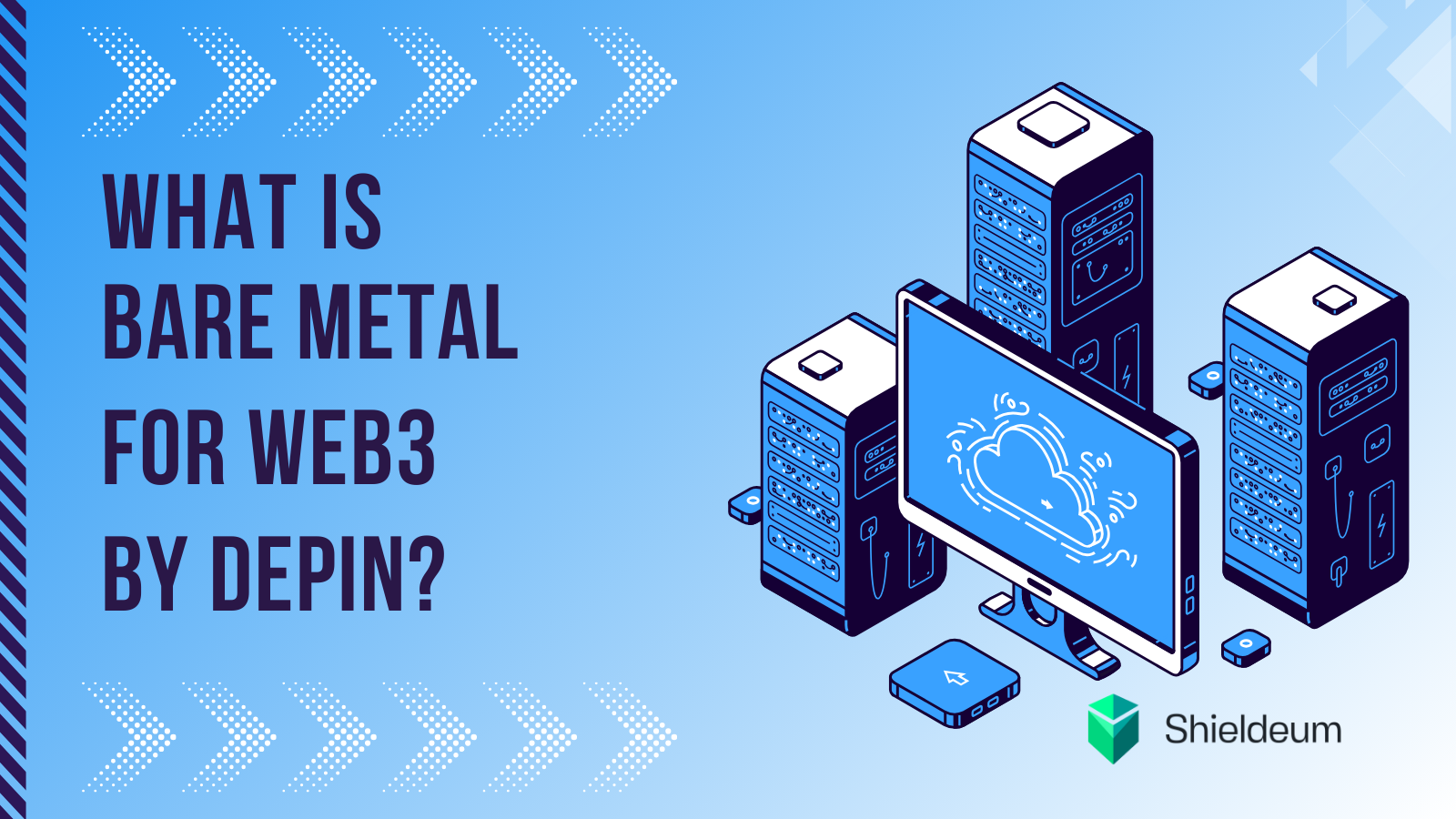Exploring the Role of DePIN in Internet Security
In the realm of internet security, traditional solutions have long been designed for a different era, one that doesn't fully cater to the needs of Web3 users. These conventional approaches, rooted in centralized structures and controlled by a handful of tech giants, often fall short in safeguarding the evolving digital landscape.
Enter a transformative solution: Decentralized Physical Infrastructure Networks (DePINs). These networks disrupt the status quo by prioritizing the protection of Web3 users, offering a decentralized and resilient alternative to traditional internet security.
Decentralization of Control
At the heart of DePINs lies the principle of decentralization, a stark departure from the centralized control inherent in traditional internet infrastructure.
DePINs disrupt this status quo by distributing infrastructure resources across a network of individual contributors. This decentralized approach reduces dependency on single points of failure, and enhances the resilience and reliability of the internet.
In a DePIN ecosystem, participants contribute their resources, such as bandwidth, storage, computational power or simply crypto, to the network. This collective contribution creates a distributed network infrastructure where resources are shared and utilized more efficiently. By democratizing access to infrastructure resources, DePINs empower individuals and communities to play an active role in shaping the internet landscape, fostering a more inclusive and diverse digital ecosystem.
Shieldeum takes this a step further by offering enhanced internet security, web3 phishing protection and anonymity that bypasses all geographic restrictions users would otherwise encounter when using a traditional ISP.
Resource Sharing
Resource sharing is the fuel that drives DePINs, and enables participants to pool their resources and collectively build and maintain infrastructure.
Through resource sharing, DePINs optimize the utilization of available resources, leading to improved efficiency and cost-effectiveness. Participants can access internet services without solely relying on centralized providers, reducing dependency and promoting a more distributed and resilient internet infrastructure. This sharing model also encourages collaboration and cooperation among network participants, which helps bolster a sense of community and collective ownership over internet resources.
This ethos is at the core of Shieldeum’s business model, as all net-revenue generated by the protocol returns to the network in the form of token buybacks which are distributed as yield to node owners.
This sound economic model has allowed Shieldeum to create their self-sustaining internet routing layer that enforces net-neutrality while increasing privacy.
Enhanced Security
Security is a paramount concern in the realm of internet infrastructure, with cyber threats and data breaches posing significant risks to users and businesses alike. Traditional internet infrastructure, characterized by centralized control and single points of failure, is susceptible to various security vulnerabilities. However, DePINs offer a promising solution by leveraging blockchain technology to enhance security and resilience.
Blockchain, the underlying technology behind cryptocurrencies like Bitcoin, provides a secure and transparent framework for recording transactions and data exchanges within the DePIN network. By decentralizing control and distributing infrastructure resources, DePINs mitigate the risk of cyber attacks and data breaches. Additionally, decentralized governance mechanisms ensure transparency and accountability in network operations, reducing the likelihood of censorship or manipulation.
Shieldeum takes this security a step further for Web3 projects and crypto natives as it has implemented A.I. solutions for internet security that protects its users not only from viruses, but also Web3 phishing sites, and malicious smart contracts that could easily drain your Web3 wallet of funds.
Peer-to-Peer Interactions
One of the defining features of DePINs is their ability to facilitate peer-to-peer interactions within internet infrastructure. Unlike traditional models where intermediaries mediate interactions between users, DePINs empower individuals to directly engage with each other for various purposes, such as content sharing, data transfer, or service provision.
Peer-to-peer interactions promote a more decentralized and inclusive internet ecosystem, where users have greater control over their digital assets and interactions.
This enables faster and more efficient data transfer, bypassing centralized bottlenecks and reducing latency. This distributed model of interaction fosters innovation and creativity, allowing individuals and communities to collaborate and exchange ideas freely.
Shieldeum scales peer-to-peer transactions to the next level with its features such as: distributed value transfer, solving issues of payment without intermediaries, and defining service parameters based on proof-of-service.
Cost-Efficiency
In addition to promoting decentralization and security, DePINs offer significant cost-efficiency benefits compared to traditional internet infrastructure models. By leveraging peer-to-peer resource sharing and decentralized governance mechanisms, DePINs minimize overhead costs associated with centralized intermediaries and administrative overhead.
Participants in a DePIN ecosystem can access internet services at lower costs compared to traditional providers, while also having the opportunity to earn rewards for contributing their resources to the network. This cost-effective model of internet infrastructure not only reduces barriers to entry for smaller players but also fosters a more competitive and innovative market landscape.
Greater security, less cost.
Conclusion
Shieldeum’s DePIN represents a paradigm shift in internet infrastructure, offering a decentralized, secure, and cost-effective solution for Web3 projects and crypto natives.
By decentralizing control, promoting resource sharing, enhancing security, and the practicality of peer-to-peer interactions, Shieldeum is reshaping the internet landscape and empowering individuals and communities to take ownership of their digital future.


